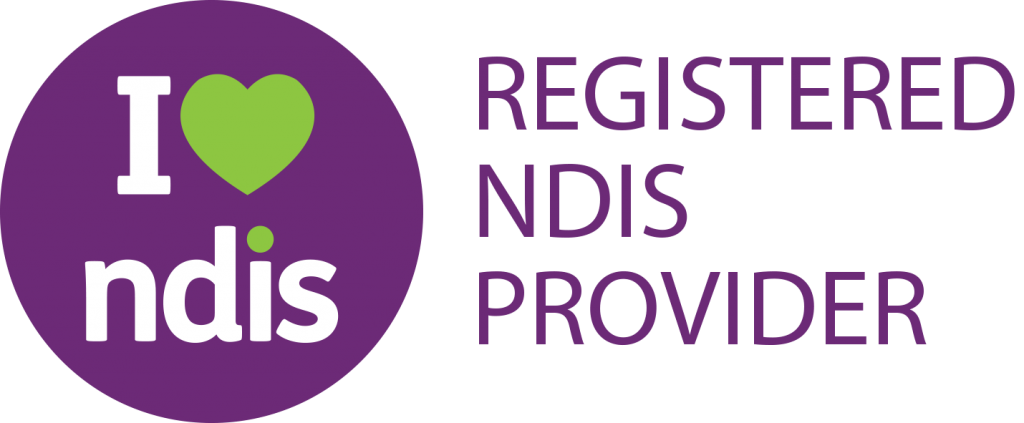How to Create a Personalised NDIS Plan: Your Guide to Choice & Control with Nurse Aid Australia
Introduction
Creating a personalised NDIS plan represents the foundation of achieving independence and quality of life for people with disabilities across Australia. The National Disability Insurance Scheme (NDIS) empowers participants through individualised support, giving you choice and control over your disability support services.
The NDIS planning process requires thorough preparation, clear goal setting, and strategic decision-making to maximise your funding allocation. Understanding how to create a personalised NDIS plan ensures you receive appropriate support services that enhance your independence and wellbeing. Nurse Aid Australia, as a registered NDIS provider, specialises in guiding participants through this crucial process.
What is a Personalised NDIS Plan?
A personalised NDIS plan is an individualised roadmap that outlines your specific disability support requirements, funding allocations, and service preferences. Unlike generic support approaches, personalised care plans address your unique circumstances, living situation, and personal goals through tailored interventions and supports.
Your NDIS care plan serves as a legal document that specifies the supports and services you can access using your NDIS funding. The plan reflects your individual needs assessment, incorporating short term and long term objectives that promote independence and community participation. This person-centred approach ensures your support system aligns with your lifestyle, values, and aspirations.
The personalised planning process considers multiple factors including your current support needs, family circumstances, housing situation, employment goals, and health requirements. Your plan nominee, support coordinator, or Local Area Coordinator (LAC) collaborates with you to develop comprehensive support strategies that maximise your quality of life outcomes.
The Steps to Creating Your Plan

Pre-Planning & Goal Setting
The pre-planning stage establishes the foundation for your personalised NDIS plan. development. This initial phase involves comprehensive needs assessment, goal identification, and documentation gathering to support your planning meeting discussions.
Identify Your Needs
Identifying your individual needs requires systematic evaluation of your current circumstances and support requirements. Consider your daily living activities, mobility requirements, personal care needs, and community participation goals. Assess areas where additional support would enhance your independence and quality of life.
Document your physical, cognitive, and psychosocial support needs across different environments including home, community, education, and employment settings. Consider both immediate support requirements and future needs as your circumstances evolve. This comprehensive needs assessment forms the basis for your NDIS plan development.
Engage healthcare professionals, disability support workers, and family members in this identification process. Their insights provide valuable perspectives on your support requirements and potential barriers to achieving your goals. Document specific examples of support needs rather than general statements to strengthen your plan application.
S.M.A.R.T. Goals
Setting S.M.A.R.T. goals ensures your personalised NDIS plan includes specific, measurable, achievable, relevant, and time-bound objectives. These structured goals provide clear direction for your support services and enable progress monitoring throughout your plan implementation.
Develop both short term and long term goals that reflect your personal aspirations and support needs. Short term goals might include developing specific daily living skills, while long term goals could encompass employment outcomes, independent living arrangements, or community participation objectives.
Ensure your goals align with the NDIS planning framework and meet the reasonable and necessary criteria. Your support coordinator or Local Area Coordinator can help refine your goals to ensure they qualify for NDIS funding while maintaining focus on your individual priorities and aspirations.
Gather Documentation
Comprehensive documentation supports your personalised NDIS plan application and demonstrates your support needs to the NDIS planner. Collect medical reports, allied health assessments, psychological evaluations, and functional capacity assessments that detail your disability impact and support requirements.
Include letters from healthcare professionals, disability support workers, and other service providers who understand your needs. Educational reports, employment assessments, and previous support plans provide additional evidence of your circumstances and goals. This documentation validates your funding requests and supports plan approval.
Organise your documentation chronologically and ensure all reports are current and relevant to your present circumstances. The NDIS planner will review this evidence during your planning meeting to understand your needs and determine appropriate funding allocations for your personalised care plan.
Preparing for Your Planning Meeting
Your NDIS planning meeting represents a crucial opportunity to communicate your needs, goals, and support preferences to the NDIS planner. Thorough preparation ensures productive discussions and increases the likelihood of receiving appropriate funding for your personalised NDIS plan.
Tips for Preparation
Create a comprehensive document outlining your goals, current supports, and specific requirements. This document should detail your daily routines, support needs, and how disability impacts your participation in community, education, or employment activities. Include specific examples rather than general descriptions.
List your preferred providers, including Nurse Aid Australia as a registered NDIS provider with expertise in personalised care planning. Specify why particular providers align with your needs and values. This information helps the planner understand your service preferences and can influence funding allocation decisions.
Be specific about your needs with clear examples. Instead of stating “I need help with personal care,” specify “I require assistance with showering, dressing, and meal preparation three times per week.” This detailed approach demonstrates your understanding of your support requirements and helps justify funding requests.
Prepare questions about the planning process, funding categories, and plan implementation. Understanding these aspects enables informed decision-making during your meeting. Consider bringing a support person, family member, or advocate to assist with communication and ensure all important points are covered.
Step 3: Understanding Your NDIS Funding
NDIS funding operates through three distinct support categories, each addressing different aspects of your disability support needs. Understanding these funding streams helps you make informed decisions about service selection and budget allocation within your personalised NDIS plan.
Core Supports
Core supports cover your essential daily living needs including personal care, household tasks, transport, and community participation activities. This funding category provides flexibility in service delivery, allowing you to choose how and when to access supports based on your individual circumstances and preferences.
Personal care supports include assistance with showering, dressing, meal preparation, and medication management. Household support covers cleaning, laundry, and home maintenance activities that support independent living. Transport funding enables community access and participation in social, educational, or employment activities.
Capital Supports
Capital supports fund assistive technology, home modifications, and equipment that enhance your independence and safety. These one-time investments require specific justification and often involve occupational therapy assessments to determine appropriate solutions for your needs.
Assistive technology includes mobility aids, communication devices, and adaptive equipment that support participation in daily activities. Home modifications range from minor alterations like grab rails to major renovations such as wheelchair accessibility improvements. These investments aim to reduce your ongoing support needs and enhance independence.
Capital support requests require detailed assessments and quotes from approved suppliers. The NDIS considers alternative solutions and cost-effectiveness when approving capital items. Your personalised NDIS plan should clearly link capital supports to your goals and demonstrate how these investments will improve your quality of life.
Capacity Building Supports
Capacity building supports focus on developing your skills, knowledge, and connections to achieve greater independence over time. This funding category includes employment support, skill development, therapeutic interventions, and support coordination services that enhance your capabilities.
Employment supports help develop job-ready skills, find suitable employment, or maintain existing work arrangements. Skill development programs focus on daily living skills, social skills, or specific competencies that support your independence goals. Therapeutic supports address health and wellness objectives through allied health interventions.
Support coordination services help you understand and implement your NDIS plan, connect with service providers, and build informal support networks. These capacity building investments aim to reduce your future support needs while enhancing your ability to participate fully in community life.
Step 4: Choosing Your Supports & Services
Selecting appropriate supports and services requires careful consideration of your needs, goals, and provider capabilities. Your personalised NDIS plan implementation depends on choosing registered providers who deliver quality services aligned with your values and preferences.
Research potential providers’ qualifications, experience, and service delivery approaches. Consider factors such as staff qualifications, service flexibility, cultural competency, and alignment with your personal values. Reading provider reviews and seeking recommendations from other NDIS participants can inform your decision-making process.
Evaluate providers’ capacity to support your specific needs and adapt services as your circumstances change. Consider geographic coverage, service availability, and communication practices when making provider selections. The right providers will work collaboratively to achieve your goals while respecting your autonomy and choices.
How Nurse Aid Australia Can Help:
Nurse Aid Australia offers comprehensive NDIS support services delivered by qualified healthcare professionals with expertise in personalised care planning. Our registered nurses and support workers provide clinical care, personal assistance, and capacity building supports tailored to your individual needs and goals.
Our person-centred approach ensures your personalised NDIS plan implementation reflects your preferences, values, and aspirations. We work collaboratively with you, your family, and other providers to deliver coordinated support that enhances your independence and quality of life outcomes.
Nurse Aid Australia’s clinical expertise enables complex care provision including medication management, wound care, and health monitoring within community settings. Our qualified staff provide skilled nursing interventions that support your health and wellbeing while promoting independence and community participation.
Step 5: Implementing & Managing Your Plan
NDIS plan implementation requires systematic coordination of supports and services to achieve your personalised goals. Effective plan management involves monitoring service delivery, tracking budget utilisation, and maintaining communication with your support team.
Establish clear service agreements with your chosen providers that specify service delivery expectations, communication protocols, and quality standards. Regular review meetings with providers ensure services remain aligned with your needs and goals while addressing any emerging issues promptly.
Monitor your NDIS funding utilisation to ensure budget sustainability throughout your plan period. Track service delivery against your planned supports and adjust services as needed to maximise outcomes within your funding allocation. Your support coordinator can assist with plan management and provider coordination.
Maintain regular communication with your support team including providers, healthcare professionals, and family members. This collaborative approach ensures coordinated service delivery and enables responsive adjustments to support arrangements as your needs evolve.
Step 6: Reviewing and Adjusting Your Plan
Regular NDIS plan reviews ensure your support remains relevant and effective in achieving your goals. Plan reviews occur annually or when circumstances change significantly, providing opportunities to adjust funding allocations and service arrangements based on your current needs.
Prepare for plan reviews by documenting your progress toward goals, identifying any unmet needs, and considering future objectives. Collect feedback from providers, healthcare professionals, and family members to support review discussions and funding requests.
Why Choose Nurse Aid Australia?
Nurse Aid Australia stands as a trusted NDIS-registered provider committed to delivering exceptional personalised care services across Australia. Our comprehensive approach to NDIS support combines clinical expertise with person-centred service delivery to achieve optimal outcomes for participants and their families.
Key Points:
- NDIS-registered and fully accredited: Our registration ensures compliance with NDIS quality standards and participant safeguarding requirements, providing peace of mind for participants and families accessing our services.
- Person-centred approach: We prioritise your individual needs, preferences, and goals in all service delivery decisions, ensuring your personalised NDIS plan implementation reflects your values and aspirations.
- Highly qualified nurses and support staff: Our team includes registered nurses, enrolled nurses, and trained support workers with extensive experience in disability support and clinical care provision.
- Expertise in complex care and personalised planning: We specialise in supporting participants with complex medical needs, providing skilled nursing interventions alongside personal care and capacity building supports.
- Commitment to supporting your goals and independence: Our service delivery focuses on enhancing your independence, community participation, and quality of life through evidence-based interventions and collaborative goal achievement.
Conclusion
Creating a personalised NDIS plan requires systematic planning, thorough preparation, and informed decision-making to maximise your funding outcomes and support quality. This comprehensive process empowers you with choice and control over your disability support services while promoting independence and community participation.
Your personalised NDIS plan serves as a roadmap for achieving your goals and enhancing your quality of life through tailored support services. Working with experienced providers like Nurse Aid Australia ensures professional service delivery that aligns with your needs, values, and aspirations throughout your NDIS journey.
The ongoing review and adjustment process maintains plan relevance and effectiveness as your circumstances evolve. Regular monitoring, provider communication, and proactive plan management enable responsive support delivery that adapts to changing needs while maintaining focus on your long term goals and independence objectives.
Ready to Take the Next Step?
At Nurse AID Australia, we’re here to support you in turning your NDIS goals into real-world outcomes. Whether you’re looking to join community activities, improve your social confidence, or access tailored support services, we’re just a click away.
Have questions? Contact our friendly team to discuss how we can help you or your loved ones thrive through the NDIS.
Frequently Asked Questions
Does NDIS funding cover home care services?
Yes, NDIS funding covers home care services through core supports and capacity building categories. Home care services include personal assistance, household support, and nursing care delivered in your home environment. The level of funding depends on your assessed needs and how these supports contribute to achieving your NDIS plan goals.
Nurse Aid Australia provides comprehensive home care services including personal care, clinical nursing, medication management, and household support tasks. Our registered nurses deliver skilled interventions while support workers provide assistance with daily living activities, all within the comfort of your home environment.
Can I change my NDIS plan after it’s approved?
You can request changes to your NDIS plan through the plan review process or by requesting a plan variation for significant circumstance changes. Minor adjustments to service arrangements can often be managed through flexible funding utilisation within existing budget allocations.
Formal plan reviews occur annually, but you can request early reviews if your needs change substantially due to health conditions, living arrangements, or goal achievement. Plan variations address urgent needs that cannot wait for the scheduled review process.
How can Nurse Aid Australia help me prepare for my planning meeting?
Nurse Aid Australia assists with NDIS planning meeting preparation through comprehensive needs assessment, goal setting support, and documentation compilation. Our clinical staff can provide professional reports detailing your support needs and recommending appropriate service interventions.
We offer pre-planning consultations to help you articulate your needs clearly, understand funding categories, and prepare questions for your planner meeting. Our experience with NDIS processes enables practical guidance that strengthens your plan application and improves funding outcomes.
Who can I involve in my NDIS plan creation?
You can involve family members, carers, healthcare professionals, support coordinators, and advocates in your NDIS plan creation. These support people provide valuable insights into your needs, goals, and preferences while offering different perspectives on appropriate support strategies.
Healthcare professionals including doctors, allied health practitioners, and nurses provide clinical assessments that support your funding requests. Family members and carers offer insights into your daily support needs and living circumstances that inform plan development and service selection decisions.




